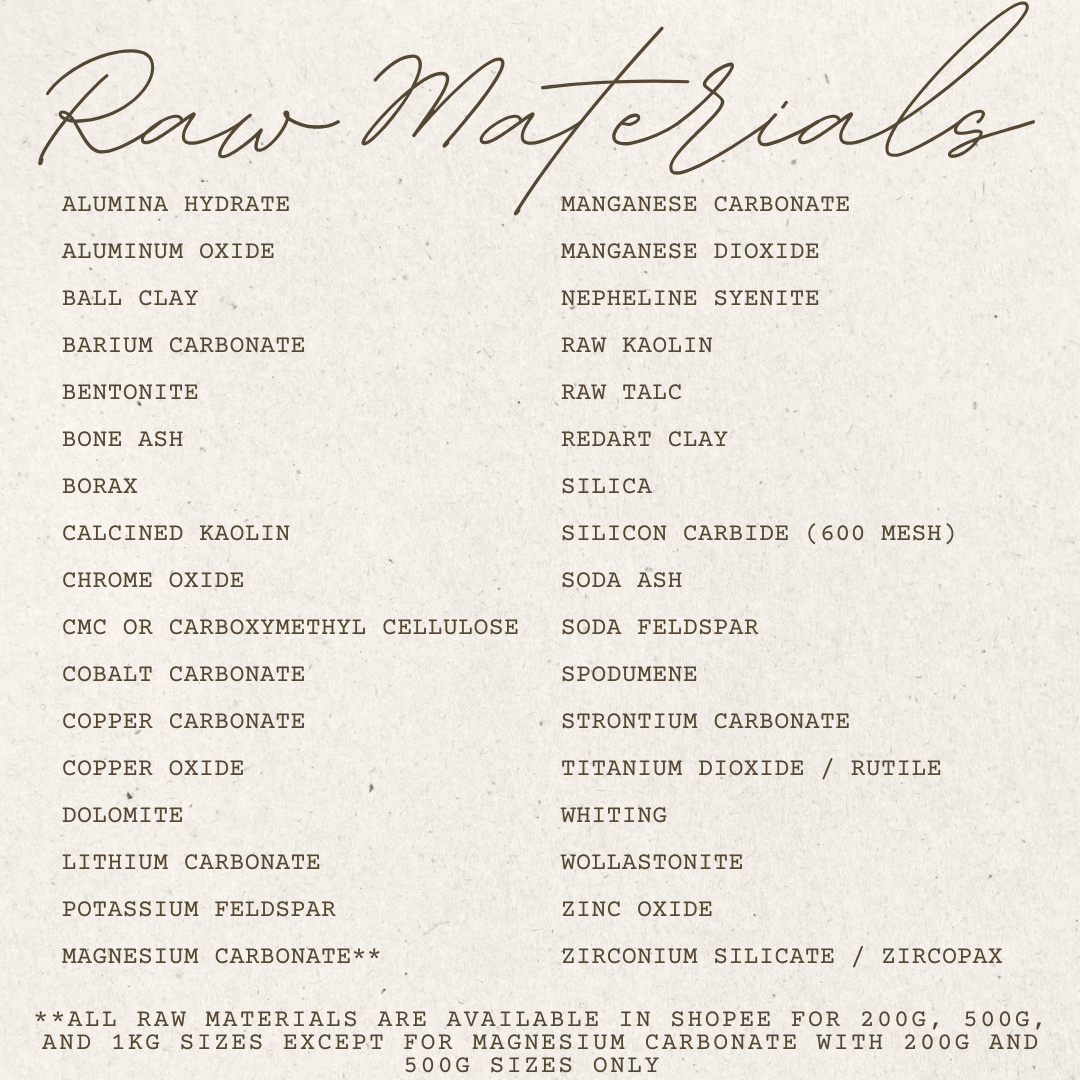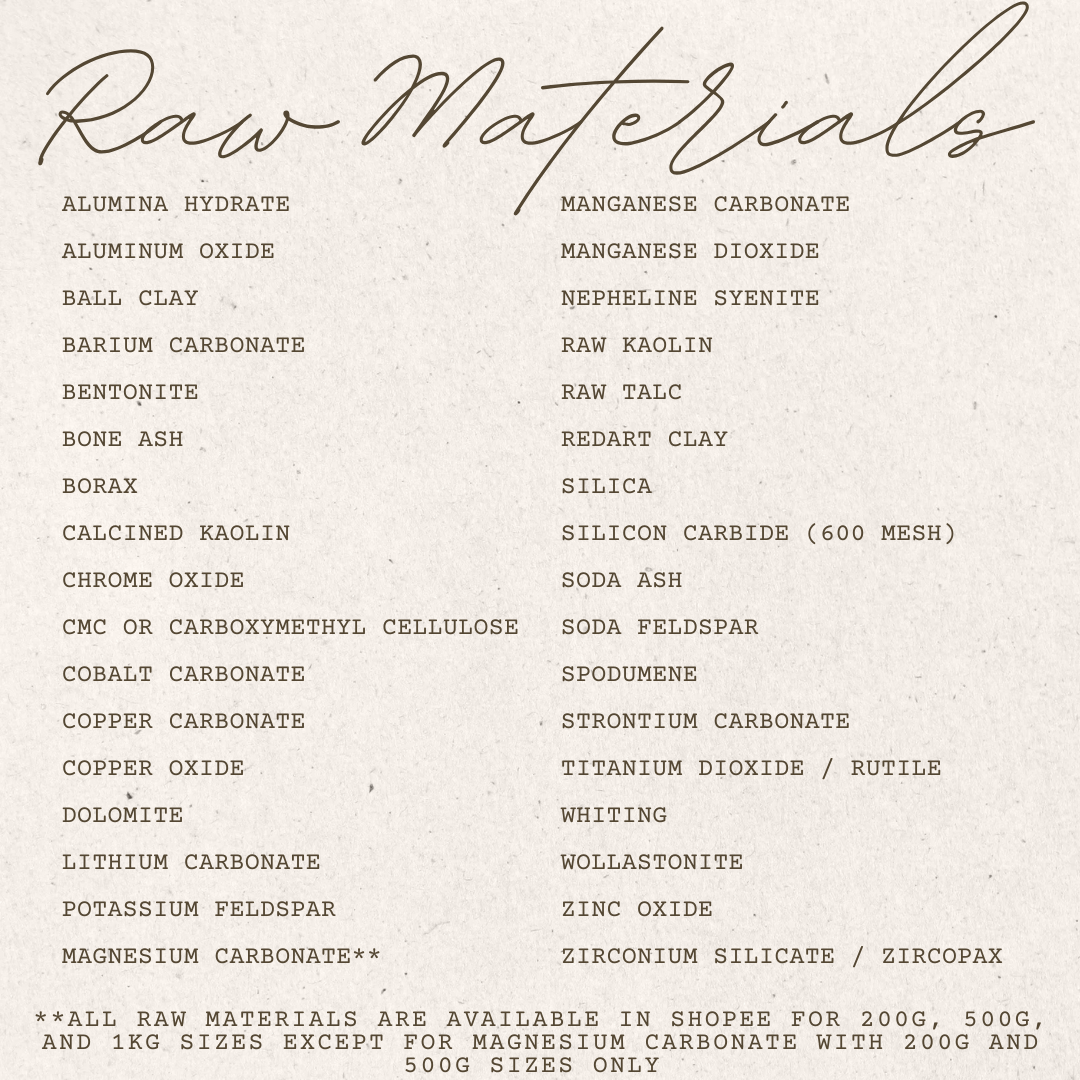Silica, also known as silicon dioxide, is a vital mineral with extensive applications across various industries. Its unique properties, including chemical stability, high melting point, and versatility, make it an essential component in ceramics, glass, and many other products.
Silica, in pottery, plays a crucial role as a fundamental component of ceramic bodies and glazes, contributing to their strength, durability, and thermal stability. When included in clay formulations, silica helps improve the structure and workability of the material, allowing potters to create intricate designs and shapes. During the firing process, silica melts to form a glassy phase, which enhances the surface quality and aesthetic appeal of finished pieces, providing a smooth, glossy finish. Additionally, silica helps prevent cracking and shrinkage by balancing the clay body’s composition, making it an essential ingredient in both functional and decorative pottery. Its versatility and ability to withstand high temperatures make silica indispensable in the art and craft of ceramics.
Appearance:
-Fine, white powder
-Amorphous silica
Other applications in different industries:
1. Glass Manufacturing:
Serves as the main component in glass production, contributing to clarity, strength, and thermal stability of glass products.
2. Construction:
Utilized in concrete and masonry products to enhance strength and workability; also used as a filler in various construction materials.
3. Industrial Applications:
Employed in the manufacturing of silicones, silicates, and as a filler in paints, rubber, and plastics.
4. Food and Beverage:
Used as an anti-caking agent in powdered food products and as a clarifying agent in beverages.
NOTE: All Raw Materials are very fine-grained (200-325 Mesh).








